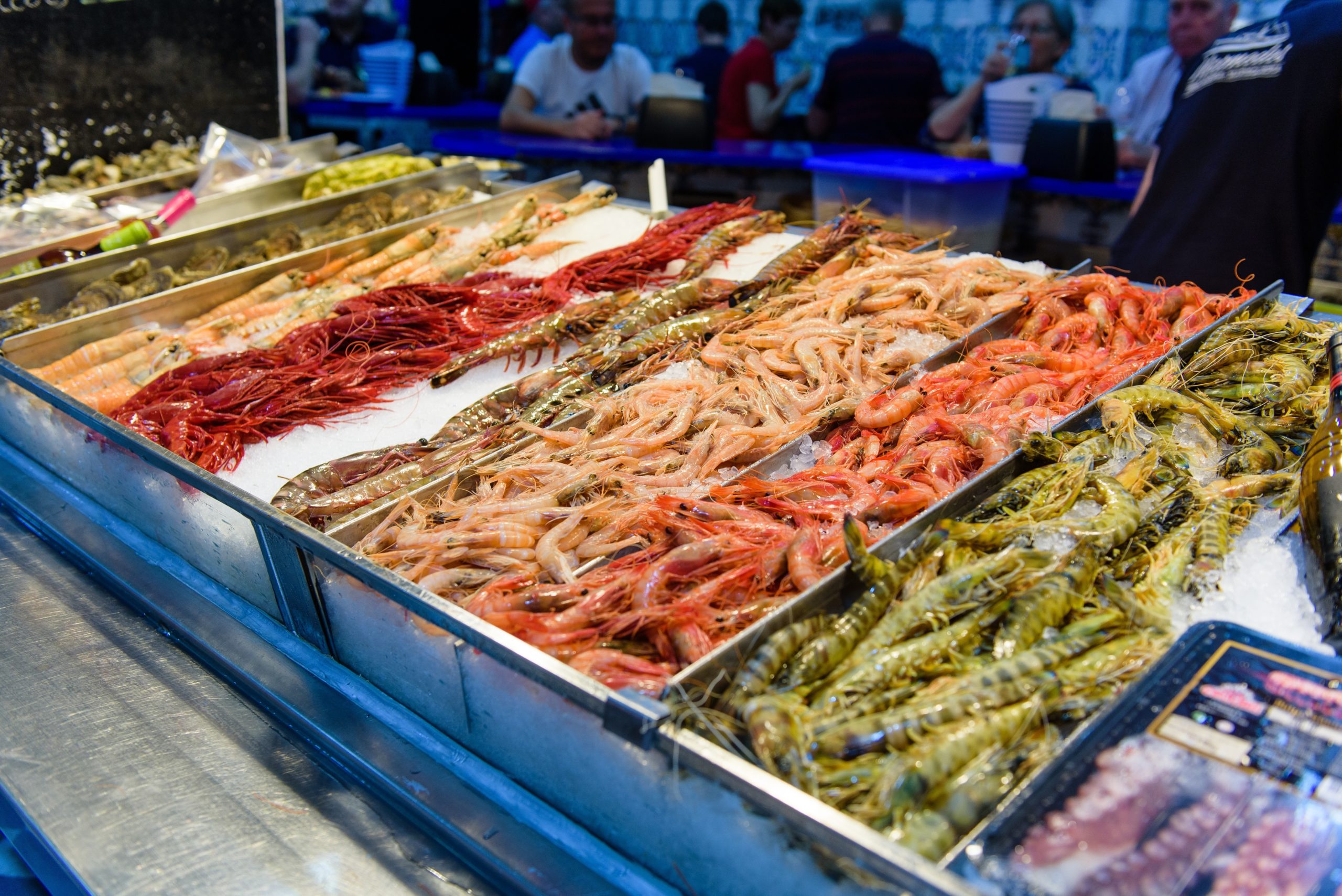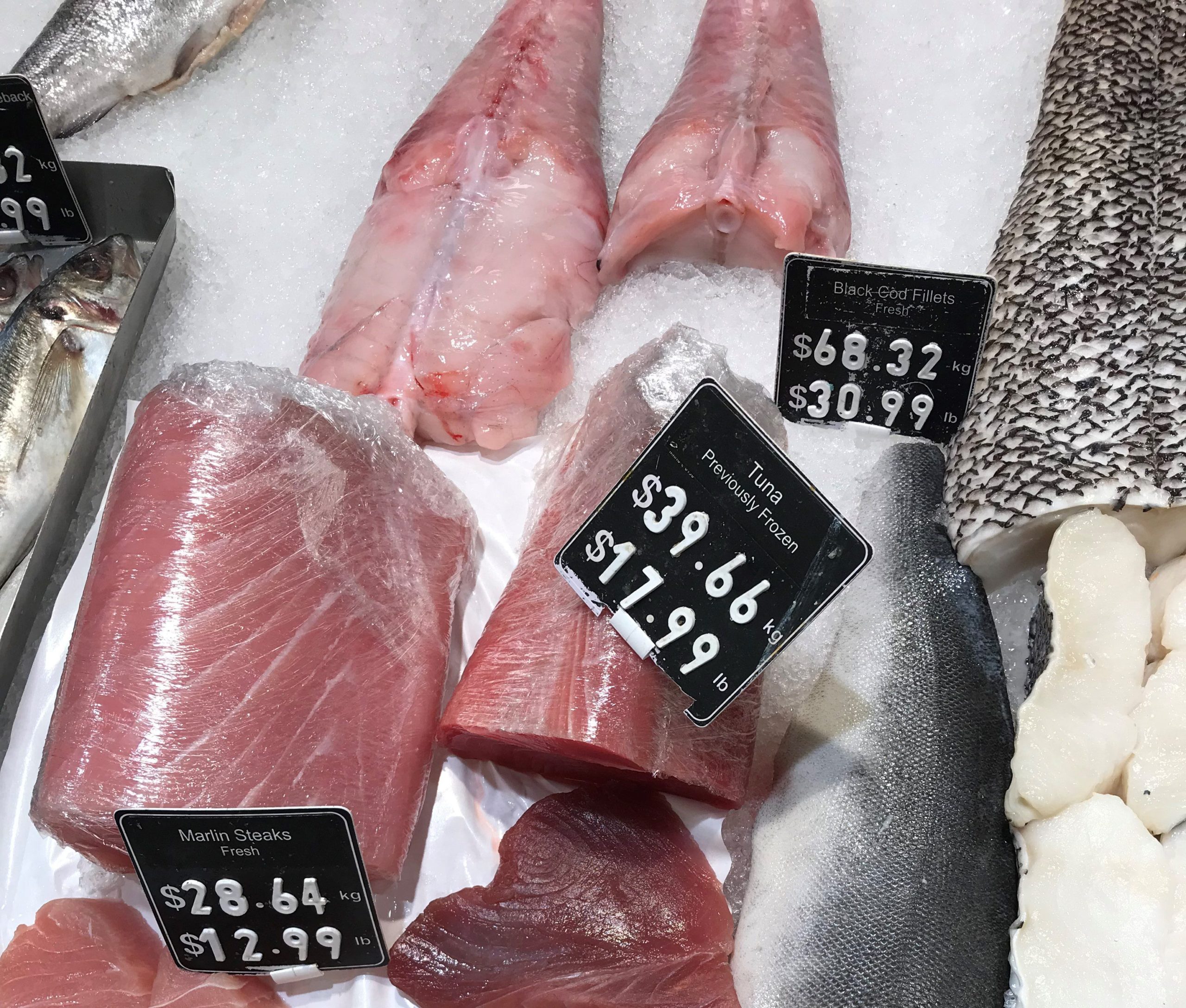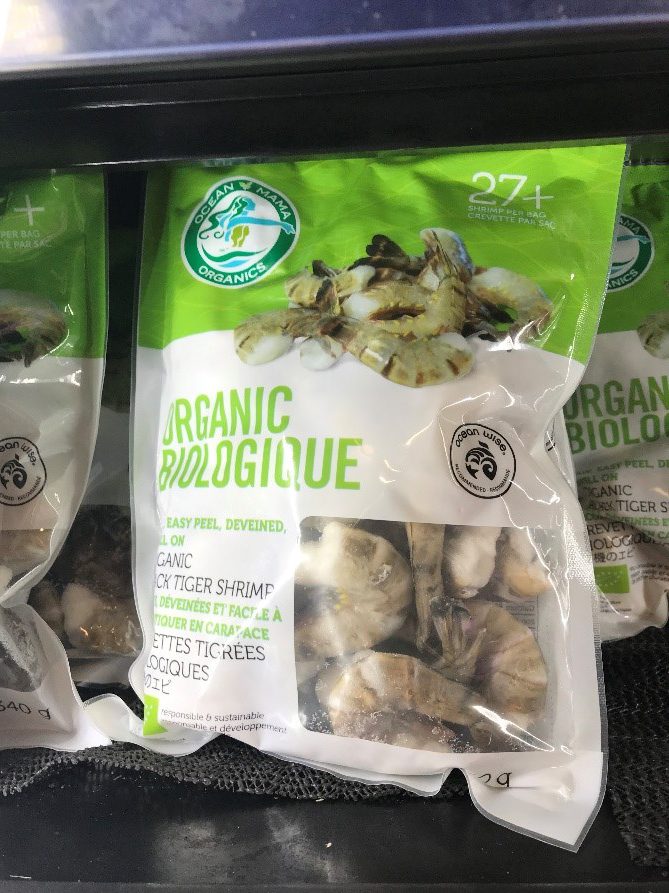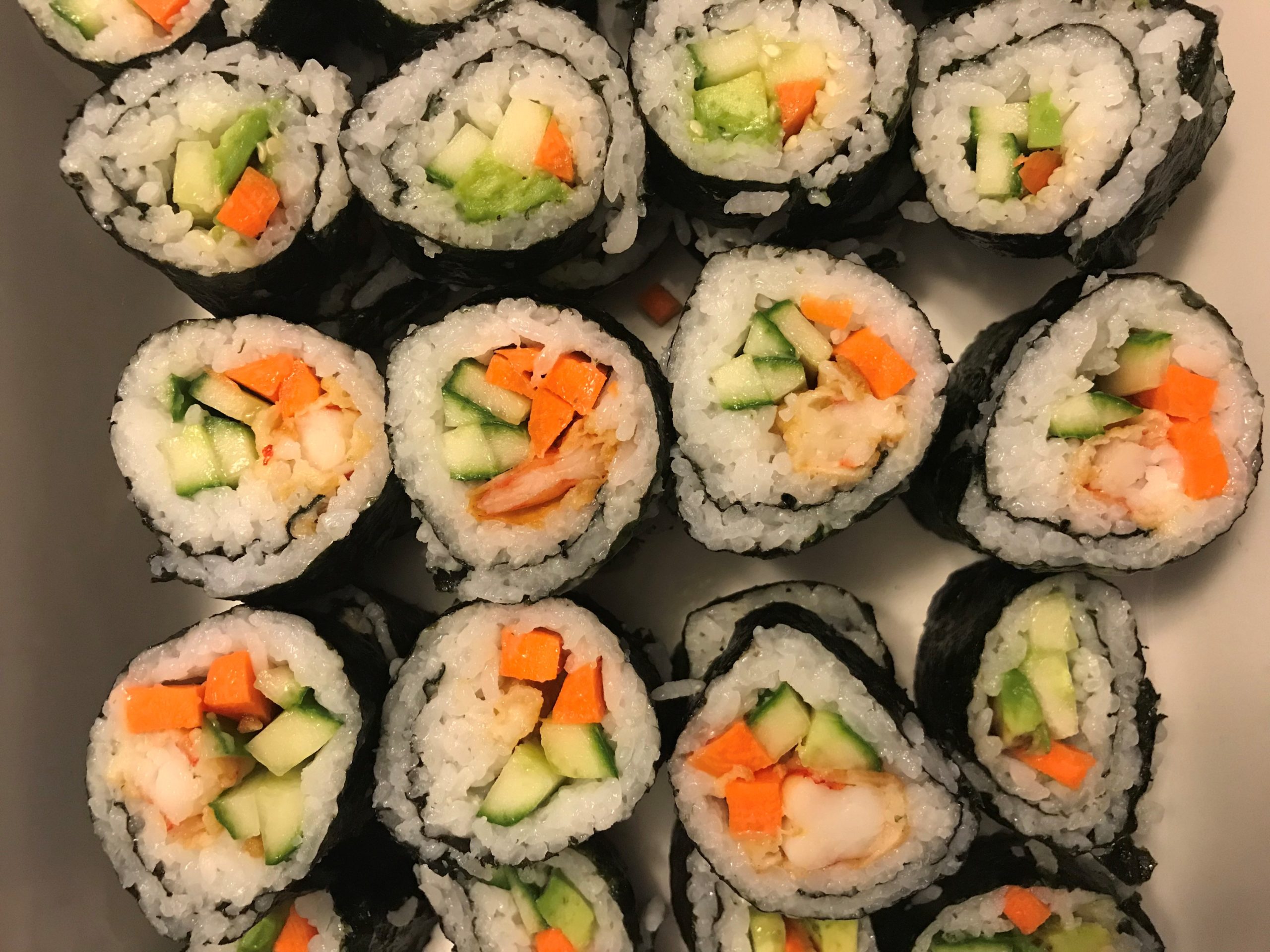
Failure to Lunch
By Erika Bolliger, Program Assistant for the Ocean Wise seafood program.
“We continue to work hard to convert all of the fish and seafood in our stores to sustainable sources,” the sign proudly stated.
This is going to be a breeze, I said to myself, as I approached the fresh seafood counter at the grocery store.
I was there to find out how easy it would be to buy sustainable fish for a make-it-yourself sushi night. Having familiarized myself with Ocean Wise’s methodology, I knew exactly what questions to ask: What species is it? How was it harvested? Where is it from?
At the counter, I did a quick scan of my options: tuna, salmon, rainbow trout, prawns, scallops, octopus…. I noticed one ASC (Aquaculture Stewardship Council) emblem along the whole row, but no MSC (Marine Stewardship Council) or Ocean Wise symbols. That was fine; I knew what I was looking for.
“Hi there! Do you have any fish that can be used for sushi?” I asked the lady working the seafood counter.

She recommended the tuna. I looked at the label and all it said was “Tuna.”
“Do you know what kind of tuna this is?” I asked, knowing that there are several species of tuna, not all of them sustainable options.
“No.”
“Okay, do you know where it is from? Or how it was harvested?” I asked hopefully.
Same answer.
“Okay, what about the salmon?”
“I don’t know.”
I pointed out the sign that mentioned the sustainability of the seafood available. She said she didn’t know anything about that. I asked if she could direct me to someone who did, and she said she did not know.
I left the seafood counter frustrated and discouraged. I would have to go to another grocery store.
The next day I was feeling more empowered; surely this store would know more about sustainable fish for sushi. Walking up to its fresh seafood counter, I saw a similar sign about sustainably sourced fish. I was ready to ask my questions, and the Ocean Wise seafood search web page was already open on my phone.
The fresh seafood display was encouraging. It was more descriptively labelled than it had been in the previous store and included information about whether an item was “wild caught” or “farm raised.” However, I couldn’t make my choice on the basis of that information alone. I still needed the species, harvesting method and harvesting location.
After an almost identical conversation to the one I’d had the day before, the meat attendant who was covering the shared counter explained that the seafood attendant was on her break. He said that she was very knowledgeable about the sourcing and farming of all the fresh seafood, that she visits all the local farms herself, and that she could definitely answer my questions if I wanted to wait an hour. I was tempted, but the idea behind this process was to take the role of the average consumer, one who probably wouldn’t want to stand around in the refrigerator section beside the seafood for an hour waiting for the attendant to return. Instead, I found a backup option: frozen shrimp.
Shrimp is another common ingredient in sushi, and by cooking it myself, I could be certain of the food safety aspect of it and would not have to worry about it being eaten raw. Arriving at the seafood freezers, I could almost hear the “hallelujah” chorus: Ocean Wise labels were everywhere! I picked out a brand that I knew well, Ocean Mama, for its sustainability and its investment in the mangrove forests of Vietnam.

In the freezer section of the store, the labelling was much clearer, and making a sustainable choice felt so much easier. I was careful, however, to avoid any brands that made vague claims to being “sustainably harvested” without any validation.
We had a delicious sushi dinner, with homemade tempura shrimp and fresh veggies. It was fun and satisfying to make the meal right at home, especially knowing that it was ethical and sustainable. The grocery shopping process hadn’t gone the way I’d imagined it would, but I was happy with the result.
More than ever before, education about sustainable seafood is desperately needed. It wasn’t the fault of the people working the seafood counters that they didn’t know the answers to my questions. It should be the responsibility of the company making the claims about sustainability to provide educational resources to their consumer-facing staff, or to make sure their products are well-labelled so customers can make informed decisions.

The Ocean Wise Seafood program offers educational resources to its partners, including periodic in-person, online, and webinar training for all the partners’ employees, to help them know their products, answer questions, and offer recommendations.
Next time you’re at the grocery store, ask your seafood clerk about the store’s sustainable fish options. In demonstrating that we care about the health of our oceans, we motivate others to act sustainably.
Posted August 11, 2019 by Ocean Wise